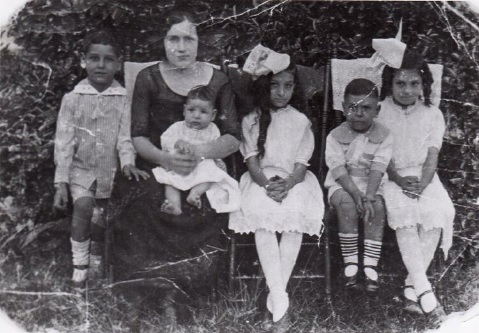
Audio Files
Interviews were conducted for The Lebanese in Mississippi, an MFA thesis by James G. Thomas, Jr. (2020).
Included in this section:
- Podcast, 4 episodes
- Interview segments with Lebanese Mississippians
See also the online exhibit: The Lebanese in Mississippi
-

14.3 Gloria and Charles remember early days of the family grocery store
Gloria Shamoun Thomas and Charles Shamoun
-

16.1 Coming to America, Working in Mississippi
John Michael "Mike" Tonos Jr.
Having arrived in Mississippi, business ownership—grocery stores, dry goods stores, hotels, and rental houses—was a desirable trade for the early Lebanese. Fathers passed the skills of the trade—and the work—down to the children. Like other Lebanese children, Mike Tonos spent much of his youth tending to the cash register in his father’s grocery store in Greenville.
-

16.2 Mississippi Delta, a place of ethnic diversity
John Michael "Mike" Tonos Jr.
Even in the early to mid-twentieth century, the Mississippi Delta was a place of ethnic diversity, and because of that concentration of cultural diversity, Lebanese difference, such as it was, felt like a shared fact of life by the youth of the first American-born generations in Greenville. Because of these close connections, socializing among Lebanese families took on the air of the familial.
-

16.3 Traveling the Delta to See Family
John Michael "Mike" Tonos Jr.
Families were spread out across the Delta and beyond, and Tonos remembers traveling the Mississippi highways and back roads to places like Shaw and Memphis, Tennessee, to see relatives, much like his parents had done when they themselves were young.
-

18.1 Exclusion
Dolores Thomas Ulmer
Even by the mid- to late 1960s, the Lebanese on college campuses in Mississippi faced various forms of exclusion, including being denied membership to certain sororities and fraternities. Sororities on the University of Mississippi campus were no exception.
-

18.2 Family Traditions
Dolores Thomas Ulmer
Like other southern families, the Lebanese in Mississippi cherish their foodways and family traditions surrounding them. Sunday meals were one such tradition that the Thomas family was faithful in preserving.
-

18.3 No Good Memories
Dolores Thomas Ulmer
The first generation of Lebanese in America seldom had fond memories of their lives on the Mountain, and many, like S.N. Thomas, chose to embrace their American nationality rather than celebrate their Syrian homeland, while still maintaining their cultural roots.
-

18.4 S. N. Thomas Coming to America
Dolores Thomas Ulmer
Dolores Ulmer’s grandfather’s story of coming to America and peddling around New York City is not an unfamiliar one for Lebanese Mississippians. Many newcomers to the country began their lives in America elsewhere before making Mississippi their home.
-

19.1 On Ancestors’ Early Experiences Peddling and Owning a Grocery Store
Lilian Louise Abraham Wilson
-

19.2 On Louise’s Mother Working in the Silk Industry in Lebanon
Lilian Louise Abraham Wilson
Silk production was a significant industry in the Mount Lebanon region of Syria in the late 1800s. Here Louise remembers her mother talking about working with silkworms on the Mountain.
-

19.3 On Louise’s Parents Speaking Arabic
Lilian Louise Abraham Wilson
Most Lebanese immigrants to Mississippi were more or less fluent in speaking English, but many continued to speak Arabic in the home. Louise recalls her parents speaking Arabic at home with Lebanese friends and family.
-

19.4 On Remembering Foodways Traditions
Lilian Louise Abraham Wilson
In this audio clip, Louise Abraham Wilson, with her niece Georgia Wilson, recalls the prevalence and importance of food to the Lebanese community in Clarksdale. Seema (Boolos), referenced in the audio, is Louise’s sister.






















